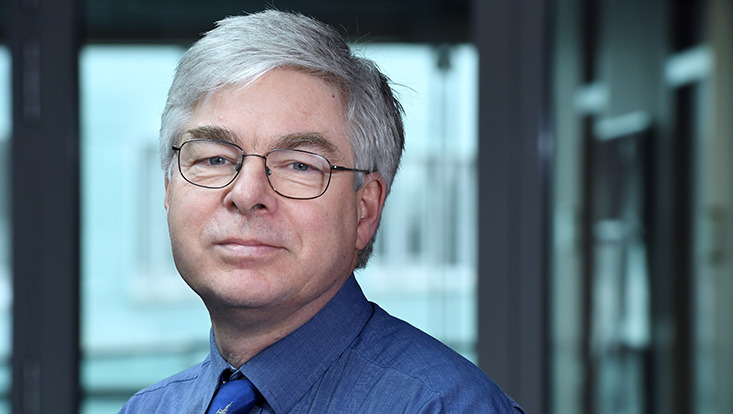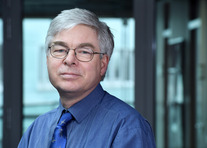20 February 2019
Professor from Universität Hamburg to head World Climate Research Programme

Photo: David Ausserhofer
Just 40 years after its founding and with the backing of the Paris Agreement, the World Climate Research Programme is restructuring. Prof. Detlef Stammer from the Center for Earth System Research and Sustainability (CEN) at Universität Hamburg has been named its new chair. In the future, research will focus on 4 core areas: short-term climate prediction; prognoses for the future; a broader understanding of the climate system; and the availability of policy-relevant climate information.
The University’s president, Prof. Dr. Dr. h.c. Dieter Lenzen, commended the appointment: “I congratulate Prof. Dr. Stammer on this extraordinary achievement. It is further proof of Hamburg’s excellence in the field of climate research.”
“It has been scientifically proven that climate change is real and that, first and foremost, human beings are responsible for it; the international community explicitly acknowledged this in the Paris Agreement,” said Stammer, who will immediately begin his duties as the chair of the international WCRP Joint Committee made up of 17 scientists. “The goal now is to see how this knowledge can be translated into recommendations for regional and local action.”
Stammer will advocate for programs that are better able to provide concrete prognoses for specific regions. Only then can scientists provide residents, policy makers, and industry with locally useful climate information—the basis for sound decisions. “This only works with international coordination. We must marshal our efforts if we are to fight climate change in time,” said Stammer.
The WCRP’s strategy goals for 2028 include greater understanding of variations and changes in the climate system as well as the greater ability to make assertions about short-term developments. A further goal is to be able to gauge the long-term evolution of the climate system, such as reactions to changing conditions, possible feedback loops, or abrupt changes. Finally, the WCRP explicitly seeks to foster dialog between the natural and social sciences. Stammer does not mince words: “We urgently need to develop this research.”
The WCRP is one of the leading initiatives in the coordination of international climate research. The WCRP receives funding from the World Meteorological Organization (WMO), the Intergovernmental Oceanographic Commission of the UNESCO, and the International Science Council.
Researchers in CLICCS, the acronym for Climate, Climatic Change, and Society, aim to understand changes in the climate and identify possible and plausible climate futures. As part of the national funding program known as the “Excellence Strategy of the Federal and State Governments,” Universität Hamburg received funding for 4 clusters of excellence—large-scale, collaborative, and interdisciplinary research alliances—including CLICCS.

